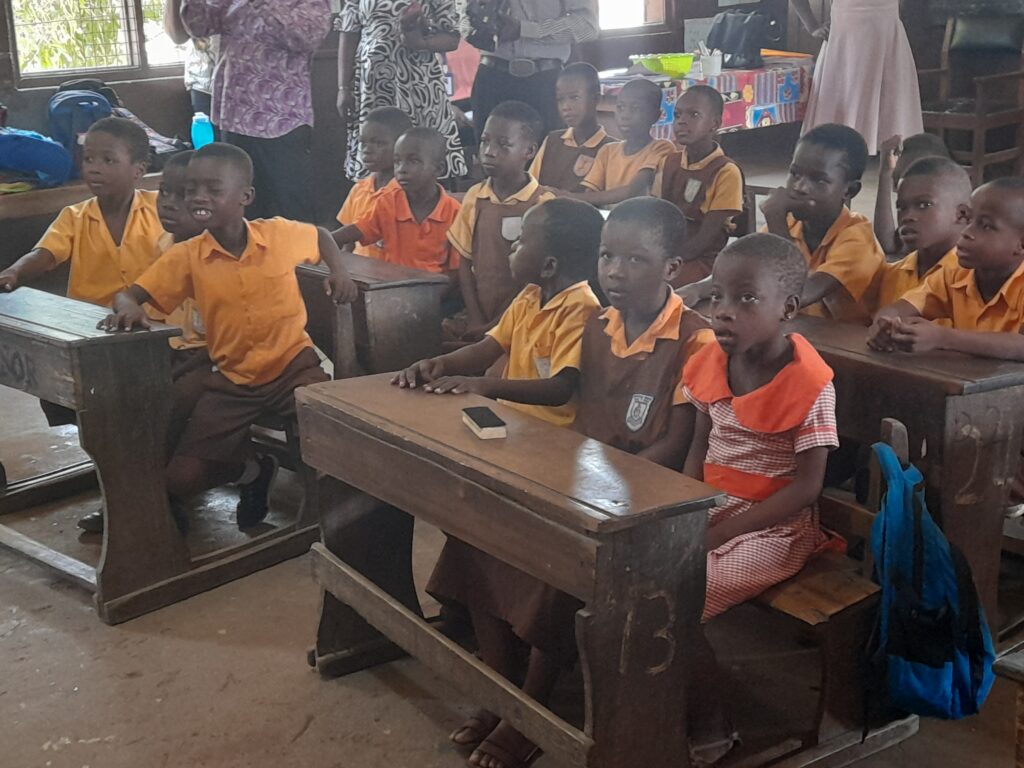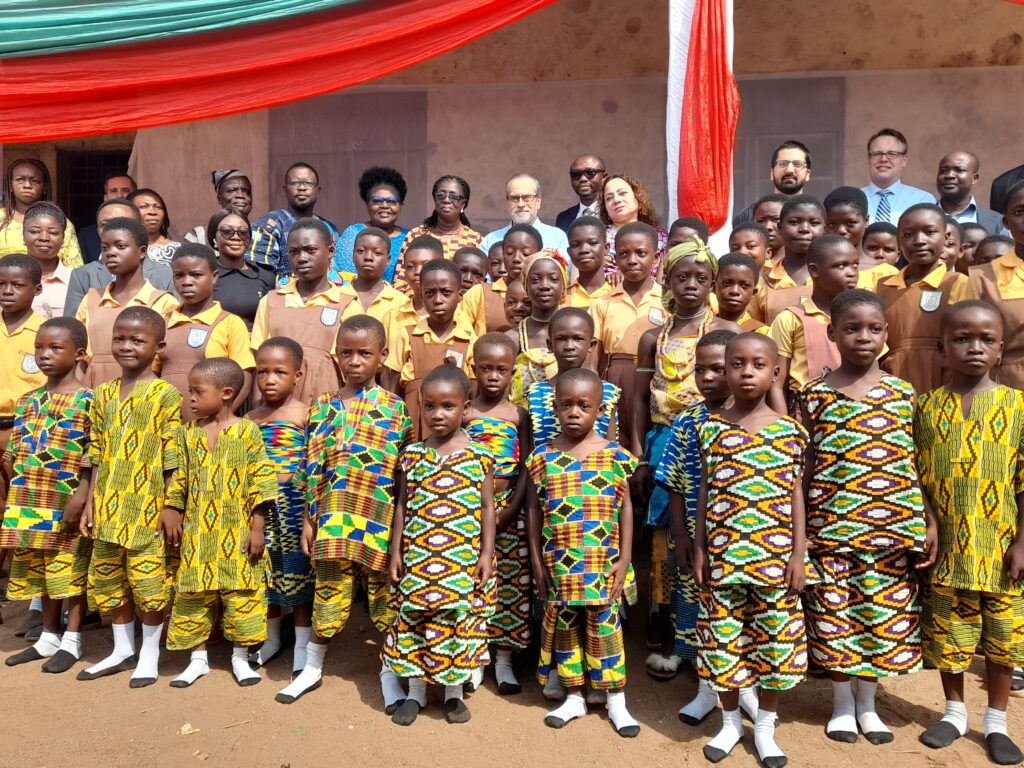World Bank funded education project improving learning outcomes in Ghana schools

There is a World Bank funded programme in some Ghana schools aimed at improving learning outcomes among school children. Since the outbreak of the COVID-19 pandemic, Bank officials have been in the country inspecting schools to get first-hand knowledge of the impact of the project.
A team led by Dr. Jaime Saavedra, the World Bank’s Global Director for Education, including Scherezad Latif, Lead Education Specialist in the World Bank Group’s Education Global Practice and some officials of the Ghana Ministry of Education visited the Mantse Tarkie Basic Schools and the Accra High School.
The World Bank is funding the Ghana Accountability for Learning Outcomes Project (GALOP) with a total amount of $214.5 million, of which $150 million is International Development Assistance (IDA) and $64.5 million Trust Fund.
The project approved on October 29, 2019 became effective on April 16, 2020, and in its third year is for five years and targeting 10,000 schools.
So far an amount of $47.55 million out of the $150 million IDA has been disbursed.
According to the Bank, the Project Development Objective is to improve the quality of education in low performing basic education schools and strengthen education sector equity and accountability in Ghana.

“The implementation process is structured around five components namely strengthening teaching and learning through support and resources for teachers; strengthening school support, management, and resourcing; strengthening accountability systems for learning; Technical Assistance, institutional strengthening, monitoring, and research; supporting the national COVID-19 response for continued learning, recovery, and resilience in basic education,” the Bank says.
The Bank has so far rated the project as satisfactory.
Among the key achievements of the Project are the teacher in-service training (INSET) harmonized training strategy/model which has been developed and is now available. A pool of master trainers has also been trained and positioned to provide training on the standards-based curriculum, the common core programme, Differentiated Learning (DL) and the TV and Radio lessons. Teaching materials for Distance Learning/targeted instruction materials were developed and reviewed by the Ghana Education Service (GES) and Ministry of Education (MoE).
Additionally, a management unit has been set up using three seconded full-time positions from the Complementary Education Agency (CEA) and GES to oversee the Ghana Education Outcomes Project (GEOF). The National Teaching Council (NTC) has developed a Mentoring and Coaching Framework as a guide to developing training documents, organizing workshops, and providing succession plans for teachers in the field of leadership and management. Since the start of the project, there has been a series of stakeholder engagements with support from GALOP, and subsequently 10,000 training materials related to the framework have been printed.
The GES and MoE have developed an Accountability for Learning Dashboard with support from some NGOs.
Activities on Monitoring and Evaluation undertake so far include: a) monitoring and evaluation of play-based learning interventions for GALOP; b) GALOP SMC training of Trainers’ workshop in Koforidua, Eastern Region and Kumasi, Ashanti Region; and c) Training of School Management Committee (SMC) members in the districts at Volta Region.
The Bank notes that the GALOP GPE COVID-19 additional financing has benefitted over four million children across Ghana through distance and homebased learning, sensitization campaigns on minimizing the negative impact of school closures, and the provision of functional hand washing facilities in line with COVID-19 protocols.
“In addition, training was provided to over 70,000 teachers in distance learning methods and accelerated programs to mitigate the loss of learning during school closures. The success of the back-to-school campaigns is reflected in the number of students and teachers returning to school once schools reopened (100 per cent students and 87 percent teachers),” it added.
Despite the overall success of the project there are some problems. One of the headteachers of the basic schools, Ms Belinda Dede Sefakor Bulley, stating some of the achievements such as being able to acquire desks and books which have aided in the improvement of learning in the schools, shared concerns about how the funds are received by the schools and the fact that the funds are inadequate to cover their pressing needs. She therefore, urged timely disbursements and provision of adequate funds to the schools.
She also indicated that the Project has enabled the schools to go to the streets and bring in children whose parents are unable to send to school.
“We have been able to bring in 25 children from the streets,” she said, and asked for increased funding for the schools.
By Emmanuel K Dogbevi
Copyright ©2023 by NewsBridge Africa
All rights reserved. This article or any portion thereof may not be reproduced or used in any manner whatsoever without the express written permission of the publisher except for the use of brief quotations in reviews.
